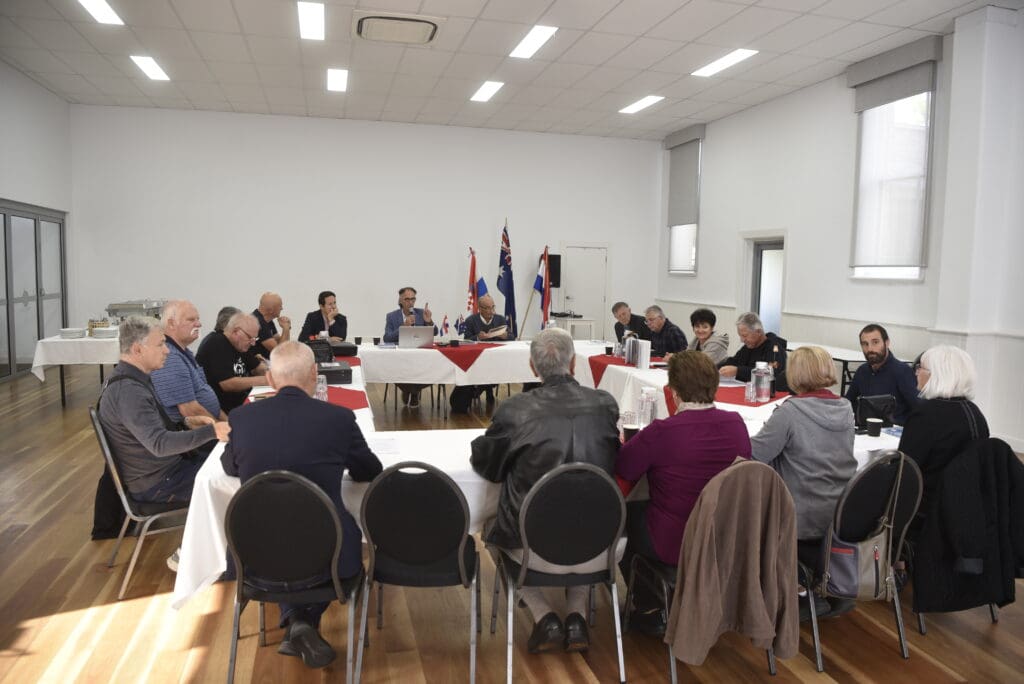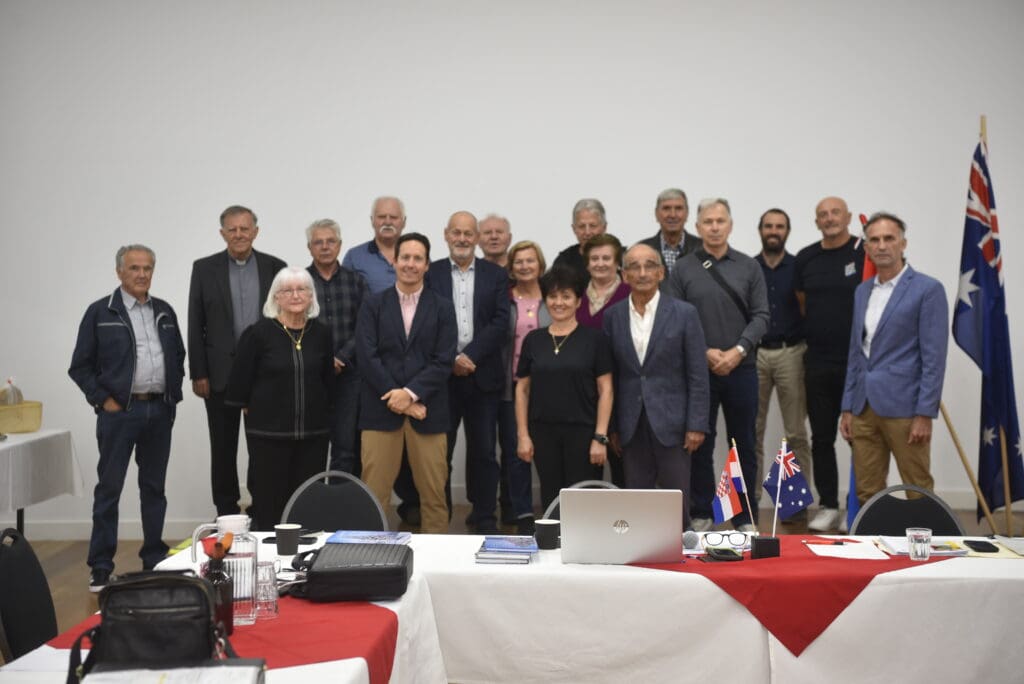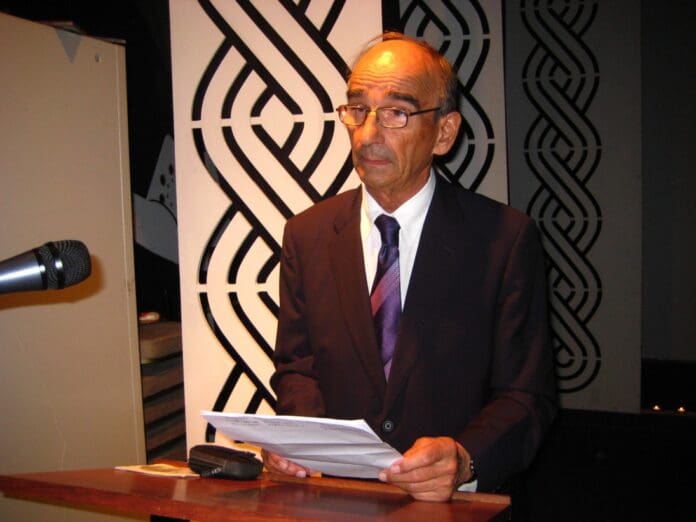An insightful interview with Stjepan Asić, an influential leader in the Australian Croatian community and President of the Croatian World Congress of Australia
By Suzana Fantov
The Croatian World Congress (Hrvatski Svjetski Kongres) stands as one of the most important global organisations uniting Croats abroad, creating a network of cooperation, identity and shared action. In Australia, where the Croatian community has deep roots and strong influence, HSK plays a key role in connecting associations, preserving language and culture, and cooperating with institutions of the Republic of Croatia.
We spoke with the current president of the Congress in Australia, Mr Stjepan Asić, about the role of the organisation, current projects, challenges and future visions.
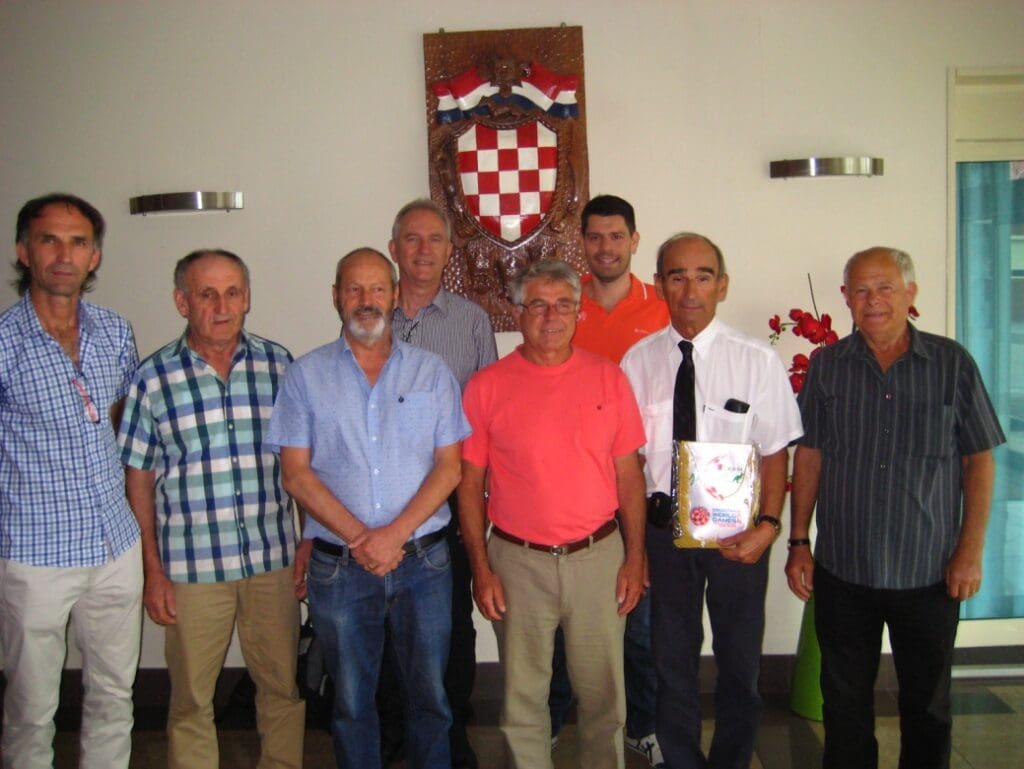
A Life Dedicated to Community and Homeland
Can you briefly introduce yourself and explain your current role in the Croatian World Congress of Australia?
I have served as President for a number of years. In fact, the Croatian World Congress in Australia is known locally as the Australian Croatian Congress (AHK). While we are part of the global HSK network, we operate independently, with our focus specifically on the Croatian community in Australia. Nevertheless, we also work on an international level in coordination with HSK.
I arrived in Australia in 1962 after living five years in South America. Experiencing different cultures and languages gave me a broader worldview, but I never lost my love and connection with my homeland or my desire to see Croatia as a free and independent state. That desire led me to become involved in efforts to achieve Croatian statehood.
I wrote about my work and community involvement in my book “Vapaj iz daljine” (“A Cry from Afar”), published in 2019. I’ve translated the book into English, and my third book, “Letters from Afar,” is a compilation of important letters and correspondence over the years.
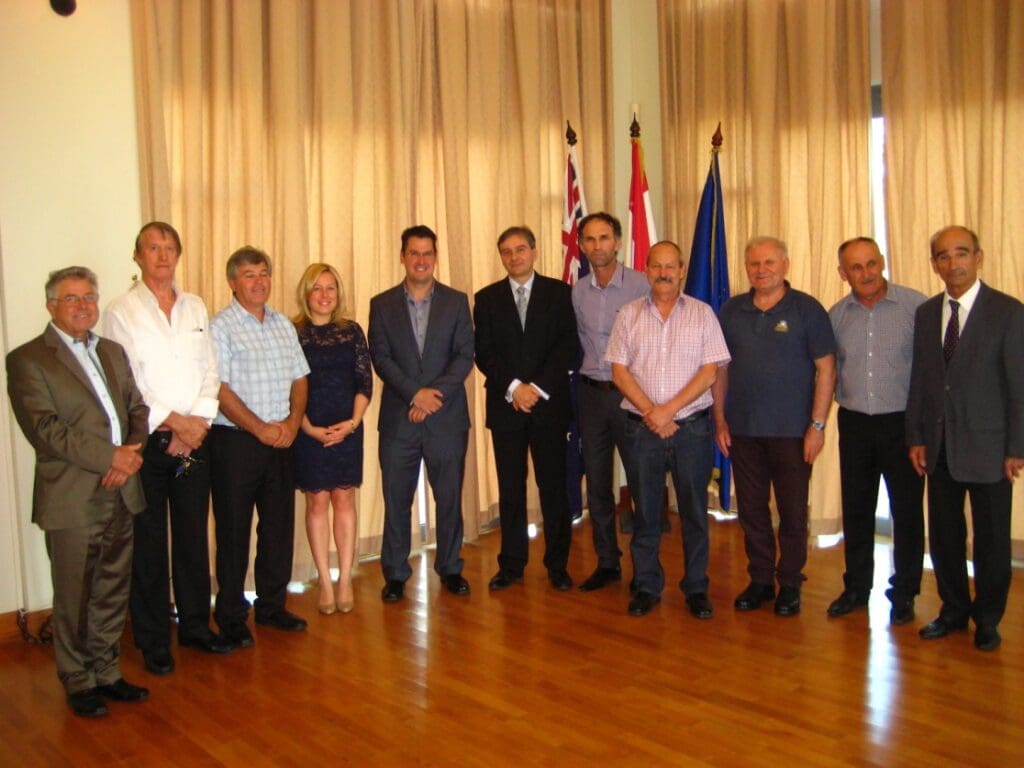
Building Bridges Between Croats in Australia and Croatia
How did your involvement with the Croatian World Congress begin, and what motivated you to join?
My involvement began two years after HSK was officially founded in Zagreb in 1993. Interestingly, the idea for the Congress actually came from the diaspora, contrary to the narrative that it was initiated in Croatia. When we received the invitation for an initial meeting via the Intercommittee of Croatian Organizations in WA, I didn’t initially give it much attention, as I was still active in the Croatian National Council (HNV), at that time the umbrella political organisation for Croatian emigrants.
However, in 1995, a public meeting was convened by the Croatian Embassy in Canberra and the local consulate in Perth. This led to the establishment of a branch and eventually my involvement in the organisation. By then, HSK had local committees in all major Australian cities. A key moment came in 1994 with the creation of the continental body and the renaming of the organisation to AHK.

What is the main mission and goal of HSK in Australia?
Much like the former HNV, which advocated for the dissolution of Yugoslavia and the creation of an independent Croatia, HSK continues in a similar spirit. The major difference is that HSK operates in a post-independence context and focuses on connecting Croats worldwide with the homeland. AHK serves that same purpose on a local level.
One of our significant early initiatives was the campaign for the establishment of an Australian Embassy in Zagreb. For this, a Coordinating Contact Group was formed to unify nearly all Croatian organisations in Australia.
How does HSK connect Croatians in Australia with the homeland and the broader diaspora?
Lobbying is one of our core activities, whether directed at the Australian or Croatian governments. Through this, we create links between organisations and strengthen connections with the homeland. AHK is represented in states across Australia and collaborates with numerous clubs and associations. For example, in South Australia, we work through the Croatian Community Council, while in New South Wales, we have close ties with the Croatian Inter-Community Council.
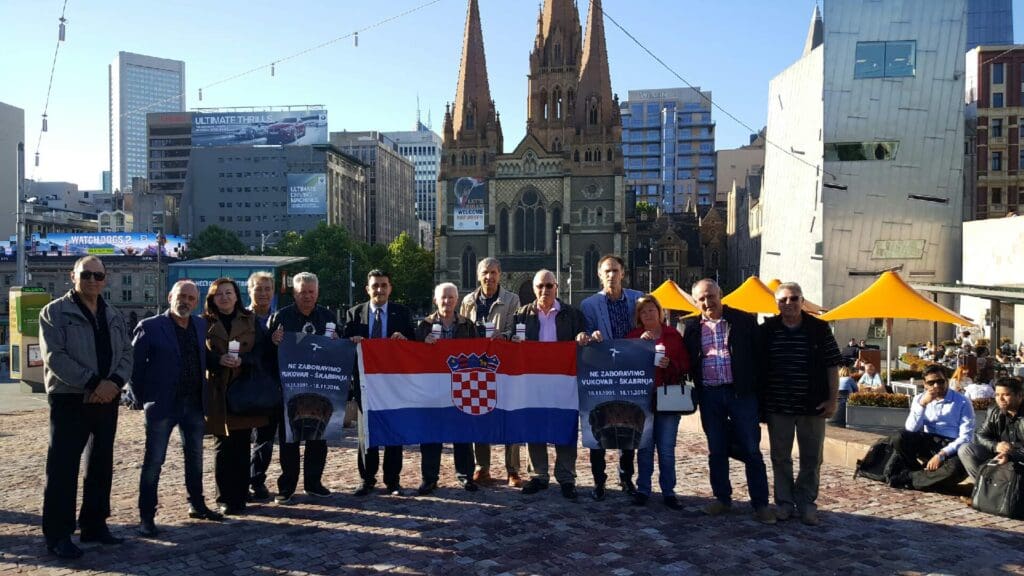
Preserving History for Future Generations
What projects or initiatives are currently underway or planned by the Congress?
One of the most important initiatives is the Croatian Community Archive project in Australia. This involves collecting, sorting, analysing and digitising documents. We’re also trying to involve the Croatian State Archives in this project.
In your opinion, what are the biggest challenges facing the Croatian community in Australia today?
Survival. When Croatia gained independence, there was a surge of activity and a rise in national pride. Many engaged with community and cultural organisations. Over time, enthusiasm waned as many realized they would not return permanently to Croatia. Maintaining strong ties with the homeland is now crucial. Diplomatic missions should also be more involved in community life, and this requires understanding how our community has functioned over the years.
How does HSK collaborate with other Croatian organisations, churches and institutions in Australia?
It depends on the local situation, but generally, AHK works well with the wider community. Many of our leaders are active in sports, media, and cultural activities. For example, in South Australia this year, AHK is leading preparations for the 75th anniversary of the first official Croatian club in Australia established in Adelaide in 1950.
Youth Are the Future


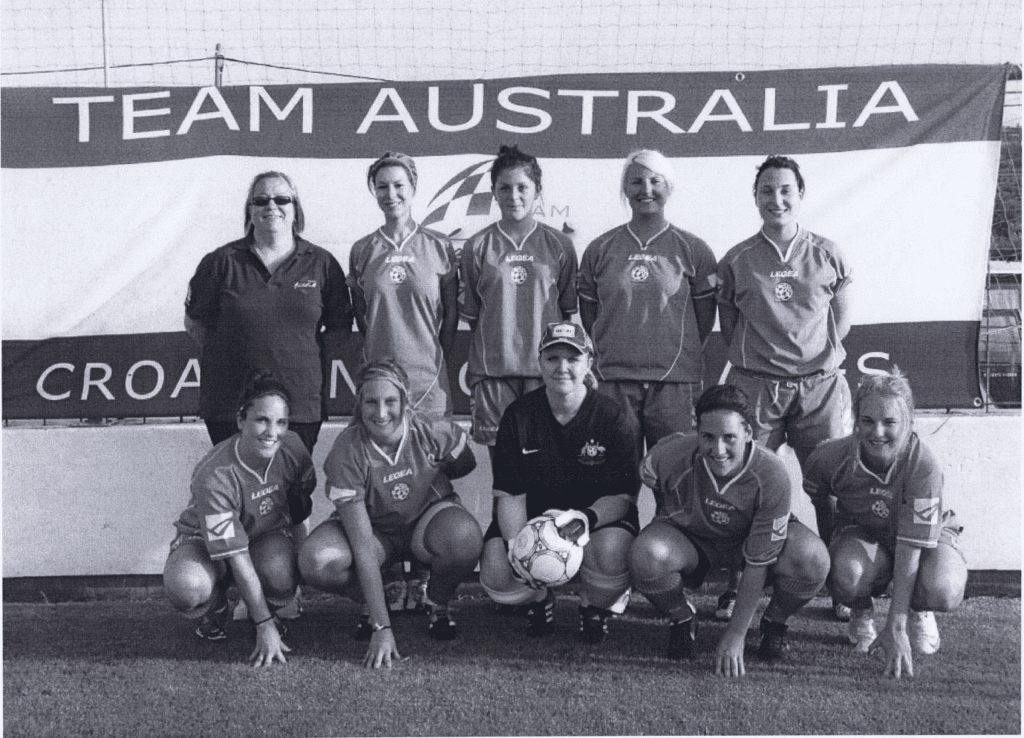
Front row: Antonia Jukić, Marijana Rajčić, Katarina Kovačević (coach), Katarina Jukić (C), Marianna Tabian.
Back row: Lily Lovrinov (manager), Evelyn Rusev, Katarina Visić, Chantel Romanik, Angelina Lovrinov.
How important is it to involve young people in HSK activities, and how do you encourage their participation?
The youth are our future. Every four years, HSK organises the Croatian World Games, bringing together young Croats from the diaspora and the homeland. The next games are in Mostar in 2027, and we are already preparing. These games are about connection and friendship through sport.
Back in 2000, we also founded a youth association called “Mlađi naraštaji” which lasted for seven years and published a newsletter, “Glasnik Kontaktnih skupina.”
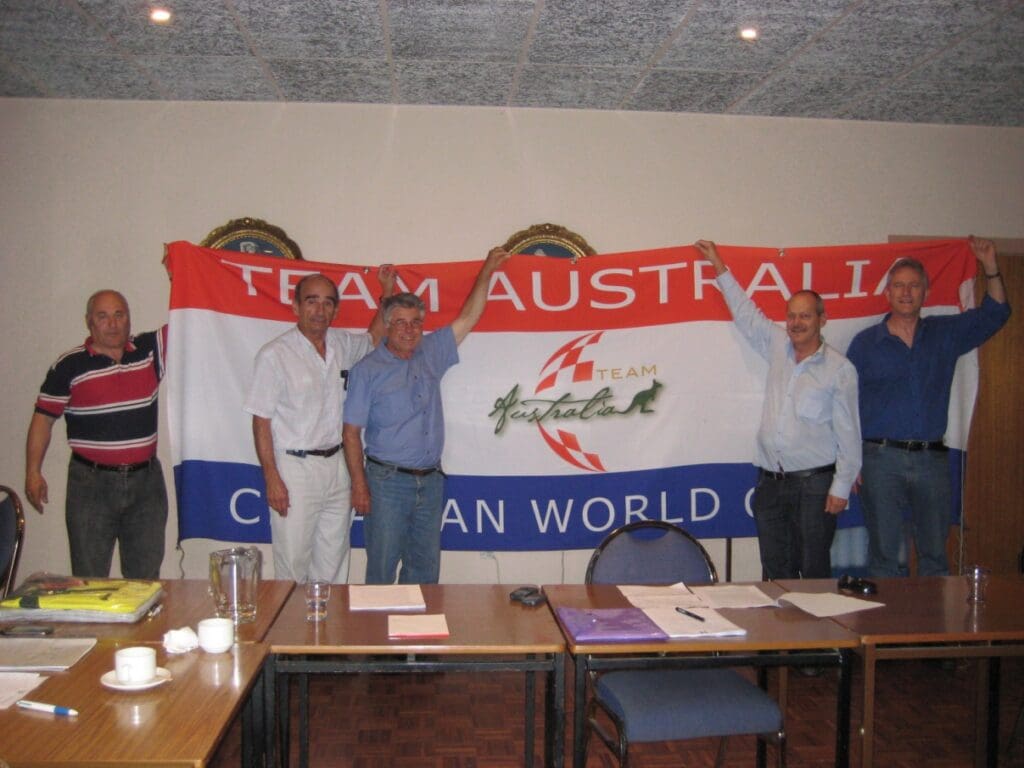
For more info visit: Croatian World Games
What is your cooperation like with institutions in Croatia – for example, the Central State Office for Croats Abroad?
We have strong ties with various Croatian institutions, not just those focused on the diaspora. HSK was the first diaspora organisation to establish contact with the Central State Office when it was formed in 2013. We collaborated on the Croatian World Games and also contributed to the Strategy for Croats Abroad.
Are there any concrete projects achieved in cooperation with Croatia or planned for the future?
Yes, including the 2003 Social Security Agreement between Australia and Croatia; exemption from visa forms for war veterans; efforts toward ending double taxation; and the introduction of Croatian-language news on SBS in 2008. Future plans include the archival project and a scholarship for one year of Croatian language study at the Faculty of Croatian Studies in Zagreb.

Croatian Language – A Treasure Worth Protecting
What other activities would you like to further develop within HSK Australia?
Language learning is critical, especially after the loss of the Croatian studies program at Macquarie University. A detailed analysis of Croatian language learning in Australia is needed. In Adelaide, for example, one member started a school for adults. In Perth, a Croatian course in the TAFE system was discontinued despite strong demand. Interestingly, half the students were non-Croatians!
We also wish to revive cultural events, such as the Croatian Cultural Week held from 1999 to 2009, which included performances from Croatia and local talent. These events promote culture and foster community spirit.

What does it mean to you personally to be part of the Croatian diaspora and to work on preserving Croatian identity in Australia?
I started my involvement back in the 1970s, when Croatia was still under Yugoslav rule. Today, Croatia is independent, and I believe the diaspora can be proud of that achievement. Sadly, much of this contribution is still unknown in Croatia. There is confusion between different historical narratives, and the role of pre-1990 diaspora efforts is often overlooked.
Croatia is now a reality, and it must be protected. Nothing will happen on its own – effort is still needed. Unfortunately, people are often quick to criticise but slow to engage.
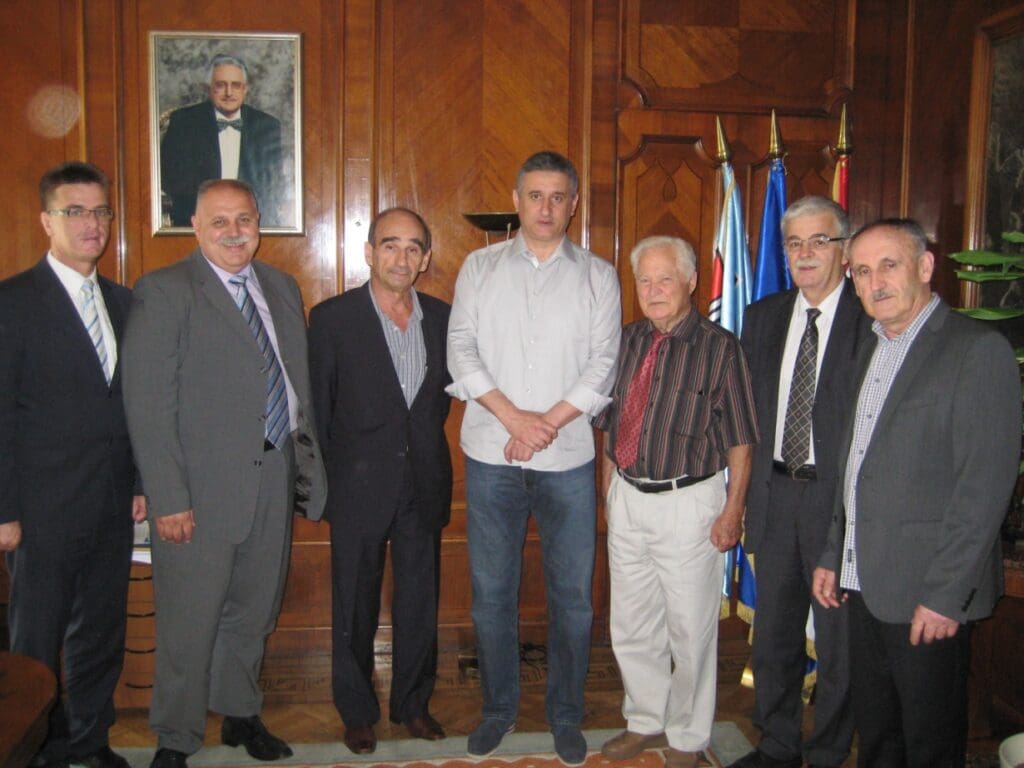
Lastly, what is your message to Croatians in Australia and to young generations discovering or strengthening their Croatian identity?
Young people today have the advantage of technology, making them the best-connected generation ever. But they also need to learn how things were done before such technology existed. Despite the lack of resources, we remained globally connected with a shared purpose – the creation of an independent Croatia.
Today’s youth also need a purpose: to recognise that Croats live around the world, not just in Croatia. With the right tools and better organisation, maintaining global unity is within reach.
We are a global Croatian nation of some eight million people, freed from the burdens of the past. Although we live in different countries, something still binds us together: our shared Croatian heritage. It can be preserved, even in places like Australia.
We live in a multicultural society, and in many ways, Croatians were pioneers of multiculturalism in Australia. By fighting for our identity, we also supported the rights of other ethnic groups. The Australian government eventually recognised the value of multiculturalism, moving away from the expectation of assimilation.
I believe the Croatian community in Australia has a strong future. We can be loyal Australian citizens while still nurturing our Croatian heritage and love for the homeland.
